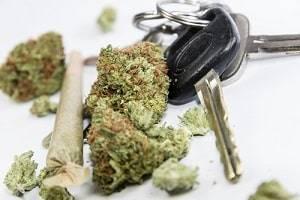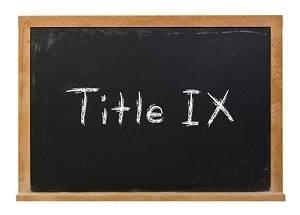

Getting pulled over when you are driving is never a good feeling. You may be worried about the ticket price of the traffic violation or be concerned about the other consequences that may follow. As of late, Americans have become increasingly concerned about their personal safety during interactions with law enforcement. With racial tensions at an all-time high and police-civilian interactions especially contentious, routine traffic stops can make many drivers more nervous than normal.
When being pulled over, it is important to remember that police officers are equally as cautious about potential dangers as the driver. Police officers risk their lives on a daily basis, and many have seen their friends and co-workers get severely or fatally injured while on the job. In order to put both the police officer and driver at ease, it is important that Illinois drivers adhere to the following guidelines.

It is not uncommon for someone to try to test the limits at least once in his or her life. For some individuals, this may involve stealing a low-priced item. Perhaps you put a candy bar in your pocket or slipped a cheap bottle of nail polish in your purse. Technically, you have committed a criminal offense, though the charges would be minor since the price of the item stolen is so low. The proper legal term for shoplifting is known as retail theft and there are actually a number of ways that this crime can be committed. Depending on the price of the item taken, the criminal charges can vary from a low-level misdemeanor to a serious felony in Illinois.
Illinois legislation names several different actions that all fall under the category of retail theft. Some of these descriptions are fairly obvious, while others you may not have known are considered theft at all. All of the following actions are considered retail theft and you can face criminal charges for knowingly doing any of the following:

Across the country, more and more states are beginning to loosen the restrictions on laws surrounding the possession and use of marijuana for both medicinal and recreational purposes. Currently, there are 33 states that permit residents with certain conditions to use marijuana, while only 11 states, including Illinois, allow recreational use of marijuana. Even though cannabis is legal for adults to possess and consume, many people do not know that you can actually be charged with a DUI if you get caught while driving while you are under the influence of marijuana. This can result in significant criminal penalties, so it is imperative to consult a skilled attorney to understand your defense options.
With the recent legalization of recreational marijuana for adults over the age of 21, some were concerned with how the change would affect existing DUI laws. However, the laws are clear that cannabis is included as a prohibited intoxicating substance, despite the reason for its use. According to the most recent Illinois DUI Fact Book, “A driver may not operate a motor vehicle while impaired by the use of cannabis, whether used medically or recreationally.”

One of the most well-known aspects of the United States’ culture is how much emphasis is put on personal freedoms, especially when it comes to firearms. To the Founding Fathers, access to firearms was so important that they even included a provision for them in the Constitution. However, with the changes that have taken place in the world since the 1700s and now, gun ownership is not an absolute right in the United States and is actually left up to individual states to set rules and regulations. In Illinois, residents must qualify for, apply, and receive a firearm owner identification (FOID) card before they are legally permitted to purchase or possess firearms or ammunition. Possessing either without a FOID card could result in serious weapons charges that could elevate to felony charges. A skilled criminal defense attorney can help you avoid a conviction if you are facing any type of firearms violation.

The United States has always had an interesting culture surrounding firearms, one that the majority of the rest of the world does not quite understand. The Second Amendment to the U.S. Constitution states that citizens are given the right to bear arms, but firearm ownership is very much a state issue. In Illinois, citizens can legally purchase and own a firearm once they have applied and been approved for a firearm owner identification (FOID) card. However, gun violence is still an issue across the country and in Illinois. This is why the state passed a so-called “red flag” law in an attempt to temporarily prevent those with access to guns from committing violent criminal acts.
Red flag laws, which are also sometimes called extreme risk laws, are not unique to the state of Illinois. In fact, Illinois was one of the most recent states to pass a red flag law and only just passed the law in 2018. Although red flag laws differ from state to state, they all aim to temporarily remove firearms from individuals who pose a risk to others. In some states, only certain people, like police officers or other law enforcement officials, can file a petition to remove a person’s firearms.

Underage drinking is all too common in today’s world. According to reports from the National Institute on Alcohol Abuse and Alcoholism (NIAAA), 58 percent of teens have had a drink by the time they reach the age of 18. This may be a result of high school parties in which alcohol is present or it may be attributed to moving away from home and going to college by the age of 18. Regardless of when it starts, binge drinking is extremely common between the ages of 12 and 20, forming bad habits before juveniles even reach the legal drinking age. Those individuals under the age of 21 often fail to recognize the ramifications that underage drinking can have on their future and their criminal record. Criminal charges may include alcohol consumption, but there are also a number of offenses that do not require any alcohol to be consumed.

Since the 1970s, the federal government has been running what has been dubbed the “War on Drugs.” This movement began decades ago but is still evolving today. Around the time the War on Drugs was declared, the federal Controlled Substances Act was signed into law, creating “schedules” of different drugs based on their purported medical use and potential for abuse. States followed by creating their own criminal laws concerning controlled substances, with many of these laws criminalizing possession as well as the sale of certain drugs. Depending on the circumstances, these offenses can be charged as felonies. However, in some situations, probation may be an option.
In Illinois, it is not uncommon for a drug possession charge to be classified as a felony. Marijuana is still federally illegal, but recreational cannabis is now legal to purchase, possess, and use in Illinois. Other controlled substances, however, are not legal, possession of these substances can result in criminal charges. You could be charged with felony possession of a controlled substance for:

In the early 1970s, the federal government passed the Education Amendments of 1972, the most well known of which is Title IX. Title IX is the federal law that prohibits discrimination on the basis of sex in higher education. One of the major issues that Title IX combats is how cases of sexual assault are handled when they arise on college campuses. Unfortunately, violent crimes on college campuses are not uncommon. According to the Rape, Abuse & Incest National Network (RAINN), around 11 percent of college students become victims of sexual violence while they are in school. Because of this, sexual violence at colleges and universities is taken very seriously. In Illinois, a person who is charged with a sexually violent crime, such as sexual assault, may face prison time, fines, and other penalties, including the requirement to register as a sex offender in some cases. If you have been accused of sexual assault, an Illinois criminal defense lawyer can help you navigate your case.

Being involved in a car accident can rattle you to the core, causing you to behave in ways that you normally would not. With adrenaline pumping through your veins, your body tells you that you have two options: stay and deal with the situation or run. If you are confused and scared by the situation, you might panic and leave the crash site. Fleeing the scene of a car accident is never a good idea and, in fact, is illegal in Illinois. If you have been accused of leaving the scene of an auto accident, you can face serious criminal penalties.
In the state of Illinois, traffic laws govern what motorists must do after being involved in a vehicle collision. Even though the consequences for fleeing the scene depend on the type of accident, there are specific actions that Illinois law requires all drivers to do, including:

Being charged with any type of violent crime in Illinois can be a scary situation. The uncertainty of the outcome of your case can be a major source of stress for you and your family. Assault and battery are two of the most common violent crimes that occur in Illinois. Depending on the circumstances of the case, you could face a felony charge and many years in prison if convicted. When you are accused of using a weapon during an assault or battery, your penalties often change and become even more serious. The use of a weapon almost always classifies assault and battery charges as aggravated assault or aggravated battery, both of which come with severe criminal consequences.
Assault is a crime that occurs when a person does something that makes another person reasonably believe that he or she will be physically harmed. Typically, basic assault is classified as a Class C misdemeanor. However, when a person uses a firearm or other weapon during the assault, the charge is elevated to aggravated assault.
 A lawyer’s time and advice are his stock and trade.
A lawyer’s time and advice are his stock and trade.